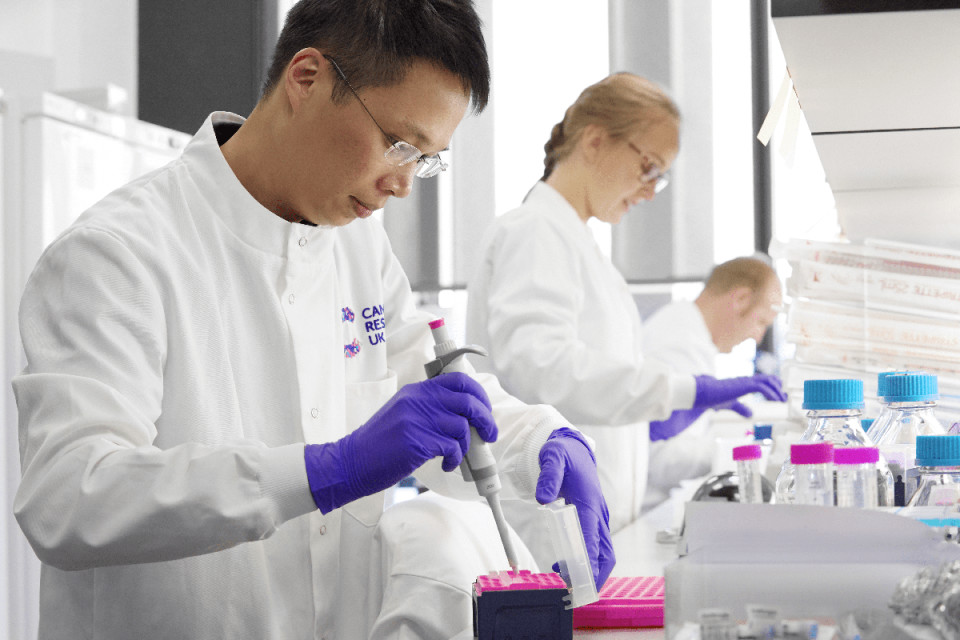Building fairer, healthier communities
By Bruntwood Works

Today (7th April) is World Health Day, celebrated by the World Health Organisation to create awareness around health issues which affect us all. From maternal and child care to climate change, World Health Day has served as an opportunity to focus attention from across the world on important aspects of global health.
This year, World Health Day is focusing on ‘building a fairer, healthier world for everyone’. Western countries have experienced rapid economic growth, migration and urbanisation over recent years, which has created opportunities for better lives for many, but also unfortunately left others behind.
The COVID-19 pandemic has put this into the spotlight even further, pushing more people into poverty and food insecurity, as well as amplifying gender, social and health inequalities across the globe.
We believe in creating equal opportunities for all and a key part of that is improving health inequity, especially for vulnerable and marginalised groups. Building fairer, healthier communities is key to our purpose as a business. For our towns and cities to truly thrive, we must collectively create inclusive societies that cater for people from all walks of life. Through the ways in which we operate as a business and our work with partner organisations, we aim to support the creation of communities that have a long-lasting, positive impact on individuals, as well as the places in which they live, work and play.
This World Health Day, the World Health Organisation is calling on leaders to ensure that communities are at the heart of decision-making as we build back after the pandemic into what will hopefully be a new, healthier future.
Building back better must mean creating long-term change that will enhance everyone’s health. We’re proud to partner with health institutions to help tackle the health inequalities faced by communities within our regions. For example, we’re working on a joint venture with the Manchester University NHS Foundation Trust to redevelop the North Manchester General Hospital. This health campus will focus on healthy living for residents, as well as offering specialist care facilities and training and employment opportunities for local people.
This is one part of a strategic regeneration framework, of which the vision is centred around creating a “focal point for the community” which offers integrated health and social care facilities, provides quality new homes and gives access to better education and training.
This kind of joined up approach to regenerating areas and developing opportunities for local people can help to reduce the disparities between individuals in our societies - within health and many other areas. It is imperative that we allow everyone to have the freedom to explore and pursue opportunities, as well as giving those less fortunate a fair chance to succeed in life.
Another way in which we live our purpose is through our work with the Oglesby Charitable Trust (OCT), which was set up by Bruntwood founder, the late Michael Oglesby, and his wife, Jean to support the cities and communities of the North. One of the key ways in which the Trust fulfils this aim is through medical research and activity relating to social and health inequality.
The health problems that the Trust encounters tend to be linked to multiple deprivation, gaps between sectors and organisations, and systemic inequalities. Over the last year, the OCT has awarded 38 grants and supported 30 organisations that aim to tackle these issues.
In 2016, the OCT founded Shared Health Foundation to reduce the impact of poverty on health in Greater Manchester. Developed and led by practical experience of health care in the least well-served communities, the Foundation works at both grass roots and systems levels to identify gaps in healthcare provision and to find sustainable and effective solutions to meet that need.
Across the number of different organisations the OCT supports, action includes supporting people out of homelessness; advocating for those seeking asylum; resourcing people in low-income communities to better manage their own health, and connecting young people in those communities with health-promoting training opportunities.
The COVID-19 pandemic has highlighted that our health and the health services we are able to access often entirely depends on the places in which we are born, live, work and age. This inequity harms our people, our societies and our economies.
But it is preventable. We aim to make a difference to the services our communities can access, but we also hope that as we build back better from the pandemic, that goes for everyone across the world, not just in our country.